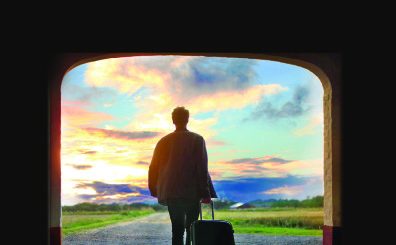Baitul Hikmah The Beacon of Wisdom in the World -Ahmad Ullah
Baitul Hikmah is one of the testimonies to how Islam contributed to this world. The House of Wisdom, built in the 8th century, was an epicentre of learning in the golden age of Islam. The Abbasid Caliph Harun ur-Rashid established it in Baghdad as his personal collection. Later his son Khalifa Al-Mamun completed it in 830 AD. Harun-ur-Rashid collected books from different parts of the world and built it as a library.
It was during the reign of Caliph Mamun that the fame of Baitul Hikma spread rapidly throughout the world and its collection grew so much that he expanded the building on a large scale and established a thematic laboratory.
Baghdad, the capital of the then Muslim civilization, was the heart of the world’s education and culture. The institution was attended by scholars from different countries and people of all walks of lives. As a result, Baghdad became the epicentre of learning. It should be noted that to ensure freedom of knowledge, all religions, castes & creeds were welcome there.
Baitul Hikmah is a vast library compared to the modern British Library and the National Bibliothic in Paris. Initially, philosophy and theology were studied, but over time, science, medicine, algebra, trigonometry, geography, chemistry, physics, biology, and astronomy were studied too.
Compilation & Translation:
Many translators, scientists, philosophers, and writers gathered at this intellectual hub to practice epistemology. Some of the Muslim scholars associated with House of Wisdom were the father of algebra Al Khwarizmi, Banu Musa brothers, scholar Hunayn ibn Ishaq, the great scientist Al-Kindi, and the mathematician Thabit ibn Qurra.
Muslim scholars translated many valuable texts from ancient Mesopotamia, Roman, Chinese, Persian, Egyptian, Greek and Byzantine civilizations. Apart from Arabic, the books were translated into various languages, including Greek, French, Latin and Indian. Scholars of Hikmah used to add annotations & explanations to facilitate the understanding of ancient writings. In many cases, the title and terminology were changed.
The tireless work of these Muslims brought to the fore the great philosophical sayings of Aristotle and Hippocrates and the writings of many scholars, including Pythagoras, Euclid, and Gallon, who are the bright faces in the world of science today. If Muslim scholars at that time had not done these special tasks and spread them all over the world, today’s science would have vanished into the womb of time.
Contribution to Mathematics:
The mathematicians of Hikmah, in particular, have made very important contributions. Hikmah’s mathematicians developed several algorithms. Hundred Centuries ago, this rich Islamic library introduced the ‘Arabic numerals’ to the world. Although the library was lost in the womb of time, its mathematical richness was able to change the whole world. The powerful mathematical revolution that began here later spread to all parts of Europe, including the Islamic State. At the same time, it gave birth to some mathematical theories, which later converted it into modern Arabic numerals with the concept of ‘zero’.
Leonardo da Pisa, better known as Fibonacci, was well known among European mathematicians. He authored a book called Liber Abakki, which was instrumental in describing and propagating Arabic numerals in the West. In fact, al-Khawarizmi’s algebraic theory of the ninth century was the basis of his work. These two people, who lived four centuries apart, could only be connected through an ancient library.
Space research:
The first observatory was built in Baghdad during the reign of the Abbasid Caliph Al-Mamun. One of the tasks of Baitul Hikma was observatory and space research. Many, including the famous astronomer Yahya, were engaged in observatory research and observed space, Which was very different from the Indians, Greeks and Persians.
Fundamental Work :
Fundamental research was also going on in Hikmah. New knowledge of optics has been acquired in the institution. This is where the world’s oldest programmed-machine model was made. It was an automatic toy. Notable Muslim scientists have done important work on eye diseases. They have done research on surgery and infection too.
Interestingly, Khalifa Mamun used to give gold coins in exchange for translations to encourage translators. After winning the war, the Abbasid caliphs searched for the books from the enemies. Books were more desirable to them than other treasures. This evidence is found in the book Almagest, written by Claudius Ptolemy, which was demanded as a condition of the peace treaty during the war with the Byzantines.
In 1256, Baghdad was attacked by the Mongols. They asked Caliph Al-Mustasim to surrender. Since the caliph did not agree, Halaku Khan laid siege to Baghdad. After a 12-day siege, Mongols entered Baghdad and carried out brutal killings. Within moments, they transformed the city into a mortuary. Along with other libraries in Baghdad, the Baitul Hikmah was destroyed too.
Nasiruddin Tusi, a Persian scholar, kept 40,000 books aside during the destruction of the library. Yet, according to folklore, so many manuscripts were thrown into the Tigris River that the river water turned black with the ink of the manuscript. Until Baitul Hikmah was destroyed by Halaku Khan, all the 32 ruling caliphs were its patrons.
The Baitul Hikmah Library, known as The House of Wisdom, became obsolete in the 13th century. So little can be known about its portrait and dimension. Therefore, historians often exaggerate its status due to a lack of information.
Above all, Baitul Hikmah opened new horizons of intellectual practice in the world, and the concept of modern research has emerged through it. Modern-day science is largely indebted to the library for its sheer patronage in science & wisdom. As the successor, it calls us to hold aloft the torch they flamed & ultimately work for.















Recent Comments